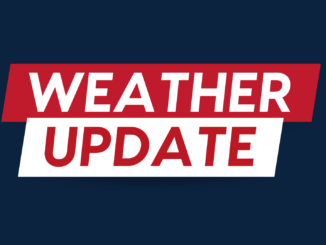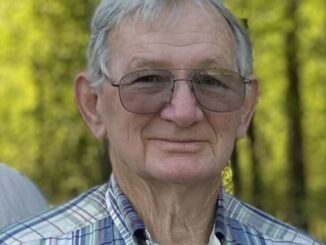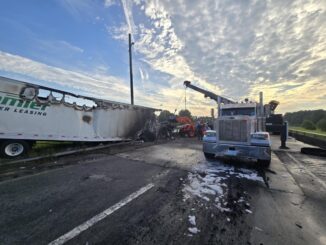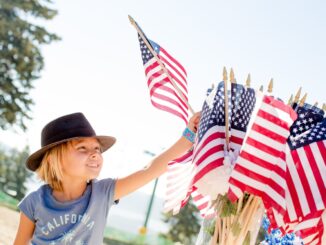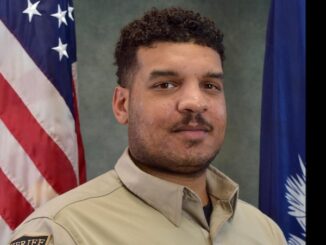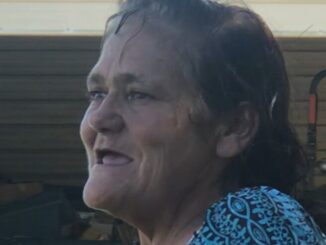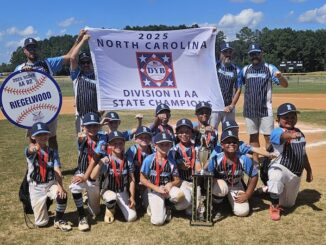
I was restless as restless can be, ill as the proverbial hornet, but there was no medicine to succor the sickness I was suffering.
We looked for a snowstorm, but we received little more than mud and misery, with a slight glaze of ice. Our church services were cancelled out an abundance of caution. The geese were happily swimming in the back yard. The dogs were bored and fretful. The cats were a little more evil than usual. The horses and goats were just miserable.
Weekends are precious time to me; I do not mind having to work sometimes, since that is the nature of my trade, but it’s the work-work that matters most. I had a list of chores a foot tall and three wide, from refreshing the horses’ manners on a rope to cleaning the yard to repairing fence and clearing the now-flooding ditch. I have to carefully pick my battles, courtesy of my injuries left from Hurricane Matthew, but the war was called on account of rain.
I had little choice but to sit and stew, albeit in a warm house with the heater cheerily orange and a steaming cup of coffee, staring out the window as the rain tried to decide whether to freeze or flow.
January was known as the Wolf Moon to Native Americans as well as the Norsemen who finally made a kind of peace and intermarried with my Anglo-Saxon ancestors. The name refers to the wolves — in our case, coyotes — who break off and begin seeking mates in January, howling the night away in search of new friends. An almost sleepless night a few days before had reminded me that I needed to set some coyote traps around our farm, if I could find places where Happy Jack and William wouldn’t get caught.
An earlier breed of trappers, those to whom I couldn’t hold a tallow candle, considered January a month for storytelling as they made their homes in winter camps, stacks of hides awaiting sale in the spring. For the modern trapper, January is a time when we own the fields and streams, since for most deer hunters, it’s also a time for storytelling, remembering the victories and losses of the season just past, while a few stalwarts chase waterfowl, rabbits and small game.
Sitting there in my great-grandfather’s chair, staring out at the cold cruelty coating the trees and puddling in the yard, I remembered another weekend right after my birthday, when the weather was colder but the world was mine.
The trek to run my line was an adventure itself, as evidenced by the three vehicles I saw piled into ditches along the way. Our road was an icy mess, since a brief melt had refrozen the night before, and the ugly slush hid a malevolent, unforgiving layer of black ice underneath. The heroes with Four County EMC had kept our lights on, and the Department of Transportation had fought a herculean battle to keep the roads safe, but there’s no accounting for poor judgement on the part of drivers.
Yet when I turned off the road, the world was perfect.
I was the only human in hundreds of acres of pristine white. Here and there were signs of nature’s little tragedies, as well as the success stories of prey animals that had escaped. For much of the day, I was the only person around for miles, since normal folks were inside, or playing with their families in the rare snow. It was nothing but me and God, along with a possum that was almost grateful and a coon who was nowhere near as polite.
Not far from where I enjoyed that day, I spent another afternoon being colder than I had in many a year. Sleet was almost horizontal, and of course the ditch I was trapping faced directly into the wind. My beard was frozen by time I retrieved the day’s catch and busted the dam loose. I’ll never forget the vulture I saw hunched miserably in a single large tree. He stared at me, possibly hoping that enough of me would freeze on top of the ice to make a worthwhile meal.
There was another bittersweet icebound evening where we sat with a friend whose wife had recently passed, enjoying hot, delicious soup from the buffet of comfort provided for every mourning family in the South. There were but a few references to his late wife, but we watched a western movie and talked of nothing. My friend was a raconteur of the first order, and a passerby would not have known he was mourning by the laughter emanating from that snug living room where a fire crackled and an old dog begged for cookies.
Remembering that evening from years ago reminded me I needed to clean the rifle he so generously gave me, but the rifle was in the truck and the cold rain battered the windows, demoralizing my work ethic.
There was the January evening when an almost magical snowfall silently smothered our town. We lived in an old house with bay windows facing the main route to the hospital, and spent the evening watching cars and trucks spin their way through the intersection like crazed ballerinas. There was nothing to do but be ready in case someone needed help, which happily no one did that night.
Another January storm years before cast me in a role as a member of a Greek comedy.
I was in college in Wilmington, and gave a female friend a ride to work in the snow and ice. My truck was better suited than her car to the weather, or so we thought. I think the city finally straightened that curve, but I was the third of seven vehicles that ended up in a ditch. No one was hurt, but nothing proves that we Southerners can’t drive in ice and snow like operating the truck that got stuck while pulling the tow truck — that was pulling a car out of a snowy ditch in front of an almost-upended police car.
My recovery skills and tools were not as good back then, plus I hope I have a little more sense now than when I was less than half my current age.
I thought of those misadventures and more as I sat there, growling in frustration at the rain, my aching back and my bum knee. I normally love a good rainstorm, but not so much when it’s too warm to snow, too cold to hunt, and fit weather for nothing but remembering the storms and stories of January.
-30-

